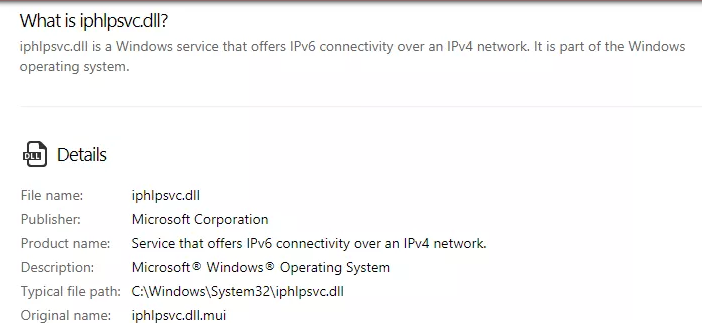HEALTH
Sewage Pollution: Understanding the Environmental Impact

sewage-pollution face serious environmental problems due to sewage contamination. Severe implications for aquatic life, human health, and the ecology result from the discharge of untreated or inadequately treated effluent into water bodies. This article will explore the nuances of sewage pollution, including its origins, consequences, and potential remedies. By realizing the stakes, we can develop plans to safeguard our water supplies and guarantee a sustainable future.
Sewage Pollution: What is it?
Untreated or insufficiently treated human and industrial waste pollutes natural water bodies such rivers, lakes, seas, and groundwater, a phenomenon known as sewage pollution. Sewage systems, industrial outlets, and agricultural runoff are just some of the many sources of this garbage that pollutes our waterways with human waste, detergents, chemicals, and other contaminants.
Causes of sewage-pollution
Sewage pollution can be attributed to several factors, including:
Combined Sewer Systems
Extreme precipitation can cause these systems to overflow, releasing untreated sewage into nearby waterways.
Agricultural Runoff
Runoff from farms that utilize too much fertilizer or pesticide pollutes local water supplies.
Failing Septic Systems
Sewage that hasn’t been cleaned can seep into the ground if septic systems aren’t working properly or aren’t maintained.
Environmental Impact of sewage-pollution
Sewage pollution poses severe threats to the environment:
Marine Life
Sewage that hasn’t been treated includes a lot of nutrients, which encourages algae blooms. This reduces oxygen levels, leading to the formation of “dead zones” in the ocean where no marine life can thrive.
Drinking Water Contamination
Humans are at risk from water contamination due to sewage pollution.
Eutrophication
Eutrophication, when water bodies become over-enriched, can be caused by sewage runoff. This process can upset the delicate balance of aquatic ecosystems.
Loss of Biodiversity
Aquatic species are particularly vulnerable to sewage contamination, which can lead to their extinction.
Sewage Pollution and Human Health
Sewage pollution directly impacts human health through:
Agricultural Contamination
It’s possible that eating vegetables and fruits produced in dirty water might impair your health.
Long-term Exposure
In areas where clean water is scarce, persistent health problems may result from prolonged exposure to sewage-contaminated water.
Sewage Pollution Prevention and Solutions
Addressing sewage pollution requires comprehensive strategies:
FAQs about sewage-pollution
What are the primary sources of sewage-pollution?
The primary sources include untreated sewage discharges, industrial effluents, and agricultural runoff.
How does sewage pollution impact marine life?
Sewage pollution leads to nutrient enrichment, causing harmful algal blooms and creating dead zones that suffocate marine organisms.
Is sewage pollution a health risk for humans?
Yes, sewage pollution can spread waterborne diseases, posing significant health risks to humans.
What can individuals do to help prevent sewage treatment pollution?
Individuals can adopt water conservation practices, dispose of waste responsibly, and support sustainable initiatives.
Can sewage pollution be completely eliminated?
While complete elimination may be challenging, proper wastewater treatment and pollution control measures can significantly reduce its impact.
How does sewage-pollution affect groundwater?
Untreated sewage can seep into the ground, contaminating groundwater and making it unfit for consumption.
Conclusion
As an urgent environmental problem, sewage-pollution has far-reaching effects on Earth and its population. The key to successful remedies is a thorough understanding of the causes and consequences of sewage contamination. We can lessen the effects of sewage contamination and safeguard future generations’ access to clean water by embracing sustainable habits, advocating for improved sewage treatment, and increasing public awareness.
HEALTH
Heart Matters: The lifesaving importance of regular cardiac check-ups

In the tapestry of modern healthcare, the heart, a vital and dynamic organ, deserves special attention. Regular check-ups with a cardiologist are not just an appointment, they are a vital part of navigating the complex landscape of cardiovascular health. This article explores the critical importance of routine visits to a cardiologist and highlights their role in the prevention, early detection and management of heart-related conditions.
Understanding the heart: A complex symphony
The heart, an organ that works tirelessly to pump life through our bodies, is susceptible to a number of conditions that can affect its function. From high blood pressure and irregular heartbeat to coronary artery disease, the spectrum of heart conditions is wide. Regular check-ups with a cardiologist allow these conditions to be detected and treated early, often before they become major health problems.
Prevention: The first line of defence
Preventive cardiology is the cornerstone of heart health. Regular heart screenings help identify risk factors such as high blood pressure, high cholesterol and diabetes. By addressing these risk factors, individuals can significantly reduce their chances of developing heart disease. Cardiologists often provide tailored advice on lifestyle changes, such as diet and exercise, which are essential to maintaining optimal heart health.
Early detection: Averting the unseen dangers
Many heart conditions develop silently and gradually, making them difficult to detect without professional assessment. Regular visits to a cardiologist can lead to early detection of problems such as arrhythmias or blockages in the coronary arteries. Early detection is crucial as it allows for timely intervention, potentially preventing serious consequences such as heart attack or stroke.
State-of-the-art diagnostics: The power of modern medicine
Modern cardiology has made great strides in its diagnostic capabilities. From echocardiograms and stress tests to advanced imaging techniques such as cardiac CT and MRI, cardiologists have a range of tools at their disposal. These tools provide a detailed assessment of the heart’s structure and function, providing critical information to guide treatment decisions.
Managing existing heart conditions
For people with existing heart conditions, regular check-ups are essential to monitor disease progression and the effectiveness of treatments. Medication adjustments, lifestyle recommendations and sometimes more interventional approaches such as angioplasty or surgery can be determined on the basis of these regular assessments.
The psychological aspect: Understanding and reassurance
The psychological impact of heart disease is profound. Regular contact with a cardiologist can provide reassurance, understanding and support. This aspect of care is crucial in managing the stress and anxiety that often accompany heart disease.
Personalised healthcare: Tailoring strategies to individual needs
Cardiology is increasingly moving towards personalised care. Regular check-ups allow cardiologists to tailor prevention and treatment strategies to the individual needs of patients, taking into account their medical history, lifestyle and specific risk factors. When it comes to cardiology in Appenzell (Switzerland), that is Kardiologie in Appenzell (in German), don’t hesitate to visit Dr. Stern at MZM.
The role of technology in cardiac care
Technological advances have transformed cardiac care. Wearable devices that monitor heart rate and rhythm, telemedicine for remote consultations, and digital health records have made it easier for patients to stay connected with their cardiologists and actively participate in their heart health management.
The broader impact: Public health and awareness
Regular cardiac check-ups play an important role in public health. They contribute to a broader awareness of heart health, encourage early intervention and promote healthier lifestyles in communities.
Conclusion: A heartfelt call to action
In conclusion, the importance of regular check-ups with a cardiologist or Kardiologe (in German) cannot be overstated. These visits are fundamental to preventing heart disease, detecting conditions early and effectively managing ongoing problems. They are an investment in your health that can lead to a longer, healthier life.
Remember, heart health is not just a personal matter; it’s a commitment to yourself and your loved ones. Regular visits to your cardiologist are an important part of that commitment. Embrace this practice as a proactive step towards a heart-healthy future.
HEALTH
How to Build Muscle with Wellhealth

How to Build Muscle with Wellhealth you want to bulk up, get stronger, and develop a more alluring body? You’ve found the proper location, then. In this post, we’ll delve into the realm of weightlifting and muscle development from a Wellhealth perspective. Nutrition, exercise, supplements, and rest and recuperation will all be discussed as they pertain to gaining muscle mass. Let’s jump right in and start learning some practical bodybuilding techniques.
Understanding the Importance of Muscle Building
The importance of muscle development cannot be overstated prior to diving into its specifics. Muscle development not only improves physical beauty but also health. Muscles are essential for movement, support, and calorie expenditure. In addition, they are crucial in increasing the body’s metabolic rate, which aids in the maintenance of a healthy weight.
The Role of Nutrition in Muscle Building
In order to gain muscle, you must first focus on your diet. In order for your muscles to expand, your body needs the proper fuel. This means getting enough of everything you need to be healthy, such protein, carbs, good fats, and vitamins and minerals. Wellhealth can help you develop a personalised diet plan to help you achieve your muscle-building objectives.
Effective Workouts for Muscle Building
The best way to gain muscle is to combine a healthy diet with regular exercise. At Wellhealth, you may choose from a number of exercises that are tailored to work certain muscle areas. You can find strength training routines that are appropriate for your experience and objectives, no matter where you stand on the fitness spectrum.
Supplements and Muscle Growth
Taking supplements throughout your efforts to gain muscle might be helpful. Protein smoothies, creatine, and branched-chain amino acids are just some of the supplements that you can learn more about on Wellhealth. However, supplement usage should be done with caution, and medical advice should be sought out if necessary.
Recovery and Rest: The Key to Muscle Development
The value of rest and recuperation is often disregarded. According to Wellbeing, resting your muscles is crucial for their growth and regeneration. In order to avoid injury and stagnation, it’s important to schedule rest days into your training schedule.
Setting Realistic Goals for Building Muscle
When trying to gain muscle mass, it is critical to focus on a process rather than a product. Get in shape the way you want to with the aid of Wellhealth’s customised plans. Keep in mind that progress is gradual, and that setting reasonable goals is essential for long-term achievement.
Common Mistakes to Avoid
When trying to grow muscle, it’s important to avoid frequent mistakes. These common blunders are highlighted by Wellhealth so that you can avoid them. Some important things to remember are to avoid overtraining, poor form, and poor nutrition.
The Mind-Muscle Connection
Muscle gain involves more than just your body and mind. The Wellhealth programme stresses the need of a robust mind-muscle link. Concentrate on the specific muscle you’re working out, and see yourself getting stronger.
Staying Consistent with Your Routine
The key to successful muscle gain is consistency. Wellhealth offers methods to keep you inspired and regular on your path to better health. Always keep in mind that it’s the steady, little things that add up to the big wins.
Tracking Progress and Making Adjustments
Wellhealth provides resources and advice to help you monitor your development. Taking stock of your fitness level and body on a regular basis will allow you to make any required modifications to your training and diet. This will guarantee that you never stop making progress.
Benefits of Building Muscle with Wellhealth
Strength, metabolism, and confidence are just some of the outcomes of using Wellhealth to build muscle. Feeling your best is just as important as looking your best.
Personal Success Stories
Wellhealth features the triumphant tales of individuals who have improved their health and quality of life by training their muscles. Genuine efforts yielding genuine outcomes.
Expert Tips for Muscle Building
Take advantage of Wellhealth’s knowledgeable staff’s wide expertise in the area of muscle development. They provide helpful advice and information to aid you on your way. Trust that you are in good hands.
Conclusion
In conclusion, Wellbeing provides an all-around method for muscular development. You can achieve your fitness objectives if you pay attention to what you eat, perform, and think about. Keep in mind that this is a marathon, not a sprint. Maintain a steady approach, and success will find you
HEALTH
Outline for “Healthy Life with Wellhealthorganic”

Healthy Life with Wellhealthorganic maintaining a healthy lifestyle is essential for happiness. It involves several factors, such as diet and stress management. In this piece, we’ll discuss the fundamentals of a healthy lifestyle and offer Wellhealthorganic, a comprehensive plan for reaching your health goals.
The Importance of a Healthy Lifestyle
A longer and more satisfying life is possible via maintaining good health. Your quality of life will improve and your chance of developing chronic illnesses will decrease.
Balanced Nutrition
The key to a long and healthy life is eating right. Eating a diet full of fresh produce, lean meats, and healthy grains is essential.
Regular Physical Activity
Maintaining a healthy weight and increasing fitness levels both need regular physical activity.
Mental and Emotional Well-being
The state of one’s mind is just as crucial as one’s body. Maintaining one’s mental and emotional health through effective stress management techniques is essential.
Quality Sleep
Getting a good night’s sleep is critical for revitalising your body and mind. The mental and emotional benefits of getting enough sleep are well-documented.
Stress Management
Numerous medical problems can be brought on by stress. Managing stress well is a vital life skill.
Hydration
For optimal body function, hydration is a must. Benefits include improved digestion, blood flow, and general health.
Avoiding Harmful Habits
To safeguard your health, you should abstain from tobacco use and binge drinking.
Natural Supplements Healthy Life with Wellhealthorganic
Natural supplements are a great way to enhance a balanced diet and active routine.
Wellhealthorganic: A Holistic Approach
When you make the decision to live a wellhealthorganic Healthy Life with Wellhealthorganic, you’re making a commitment to your overall health and happiness.
Benefits of Organic Living
Organic meals and goods are healthier for your health since they don’t include any artificial ingredients or chemicals.
Eco-Friendly Living
Wellhealthorganic encourages eco-friendliness, so that our world can be preserved for future generations.
Conclusion
Everyone has the potential to live a healthy life, and this potential is multifaceted. It involves a lot more than just eating right and exercising, though. If you’re looking for a comprehensive method to improve your health and the state of the planet, go no further than wellhealthorganic.
FAQ’s
What is Wellhealthorganic?
Wellhealthorganic is a lifestyle philosophy that prioritises health, sustainability, and environmental consciousness in equal measure.
How can I start living a healthy life?
Start today by incorporating good food, regular exercise, and stress reduction into your daily life.
Why is mental well-being important for a healthy life?
Your quality of life and physical health are both affected by your mental health.
What are the benefits of organic living?
Choosing to live an organic lifestyle means less time spent inhaling toxic chemicals and more time enjoying life.
How can I transition to a Wellhealthorganic lifestyle?
Choosing organic products and lowering your carbon footprint are great places to start.
-

 Marketing1 year ago
Marketing1 year agoHow Often Should You Publish on a Blog?
-

 Technology1 year ago
Technology1 year agoIPHLPSVC Services Tuning? Windows 7/10
-

 Technology1 year ago
Technology1 year agoHow AI Can Transform Healthcare
-

 REVIEWS1 year ago
REVIEWS1 year agoBest Gaming Communities Like F95zone
-

 OUTDOOR1 year ago
OUTDOOR1 year agoColoring Black and White Photo at Home
-

 Technology1 year ago
Technology1 year ago5 Best React JS UI Frameworks for Swift Prototyping
-

 REVIEWS1 year ago
REVIEWS1 year agoAll You Need to Know About KissAnime – Is it Safe and Legal?
-

 GAMING1 year ago
GAMING1 year agoPick N Mix: A Slots Adventure for Everyone
